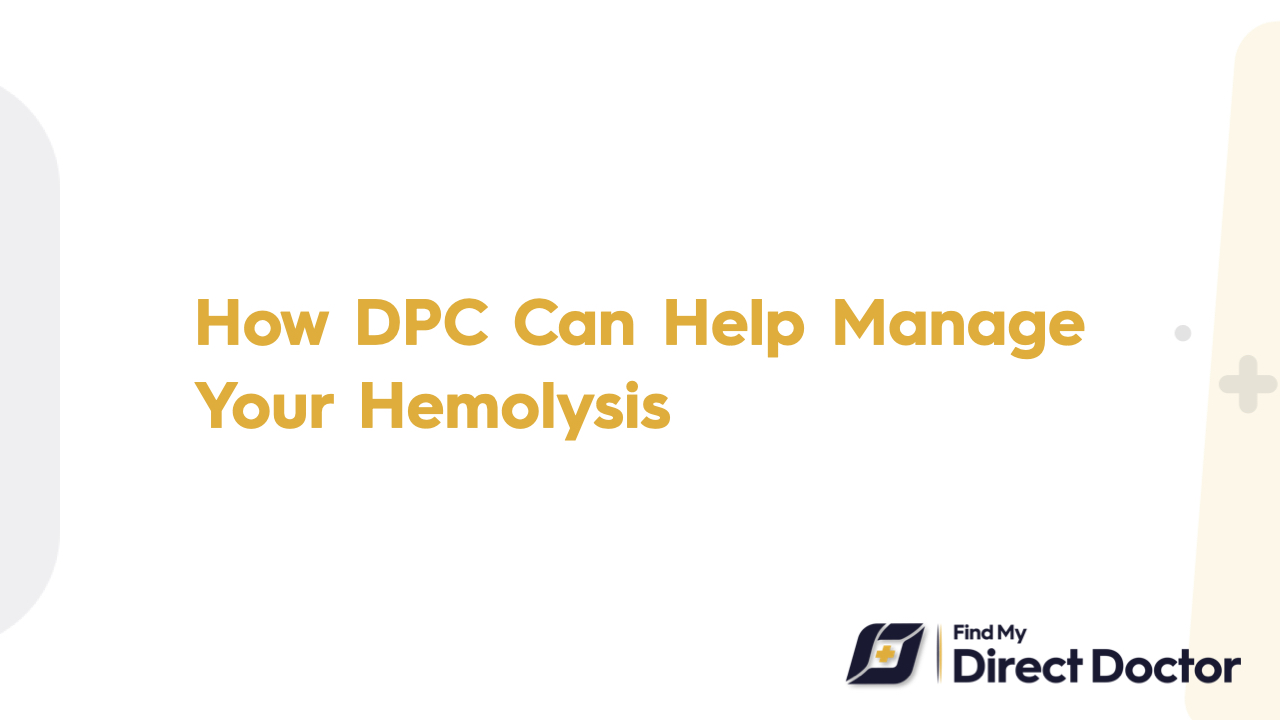



The early destruction of red blood cells, known as hemolysis, lowers the quantity of these cells in the circulation. Numerous things, such as infections, autoimmune diseases, specific drugs, or genetic problems, might cause this condition. The body might not be able to replenish red blood cells rapidly enough if they degrade too quickly.

The intensity and underlying cause of hemolysis can affect the symptoms. Fatigue, pale skin, jaundice (eye or skin yellowing), dark urine, and an elevated heart rate are typical symptoms. Depending on the degree of hemolysis, people may also have enlarged liver and spleen or abdominal pain.
Hemolysis can be managed patient-centered using Direct Primary Care (DPC). Better condition monitoring is made possible by DPC's regular, direct access to your doctor. This proactive strategy guarantees that any problems are dealt with quickly before they cause more serious concerns.
Your doctor can use DPC to track important blood markers, like bilirubin and hemoglobin levels, and identify any changes that might indicate hemolysis. To ensure you receive individualized care when you need it most, your healthcare practitioner can also modify your treatment strategy to control symptoms and stop additional red blood cell breakdown.
For hemolysis patients, DPC has a number of advantages, most notably the emphasis on continuous, individualized care. Your doctor can manage your health more thoroughly if they have more time to spend with each patient and are not pressed for time between appointments. This facilitates the management of conditions such as hemolysis, which may necessitate continuous care and observation.
Making it simple to get in touch with your doctor for guidance or follow-up care fosters a caring atmosphere where patients are respected and feel taken care of. Furthermore, DPC places a strong emphasis on preventative treatment, so your physician can assist in spotting hemolysis early and taking prompt action to stop more problems.
Hemolysis treatment at DPC is tailored to your individual needs. Your primary care physician will collaborate with you to determine any underlying illnesses that may be causing hemolysis, as there are many different explanations for this disorder. They can then suggest suitable therapies, like drugs, dietary modifications, or lifestyle changes.
Regular follow-ups and blood tests are also part of a customized treatment plan, which allows you to monitor your status and make any required adjustments. You get personalized care and attention with DPC, which guarantees that your hemolysis is adequately controlled and that you have the assistance you require to lead a balanced, healthy life.
Previous Post